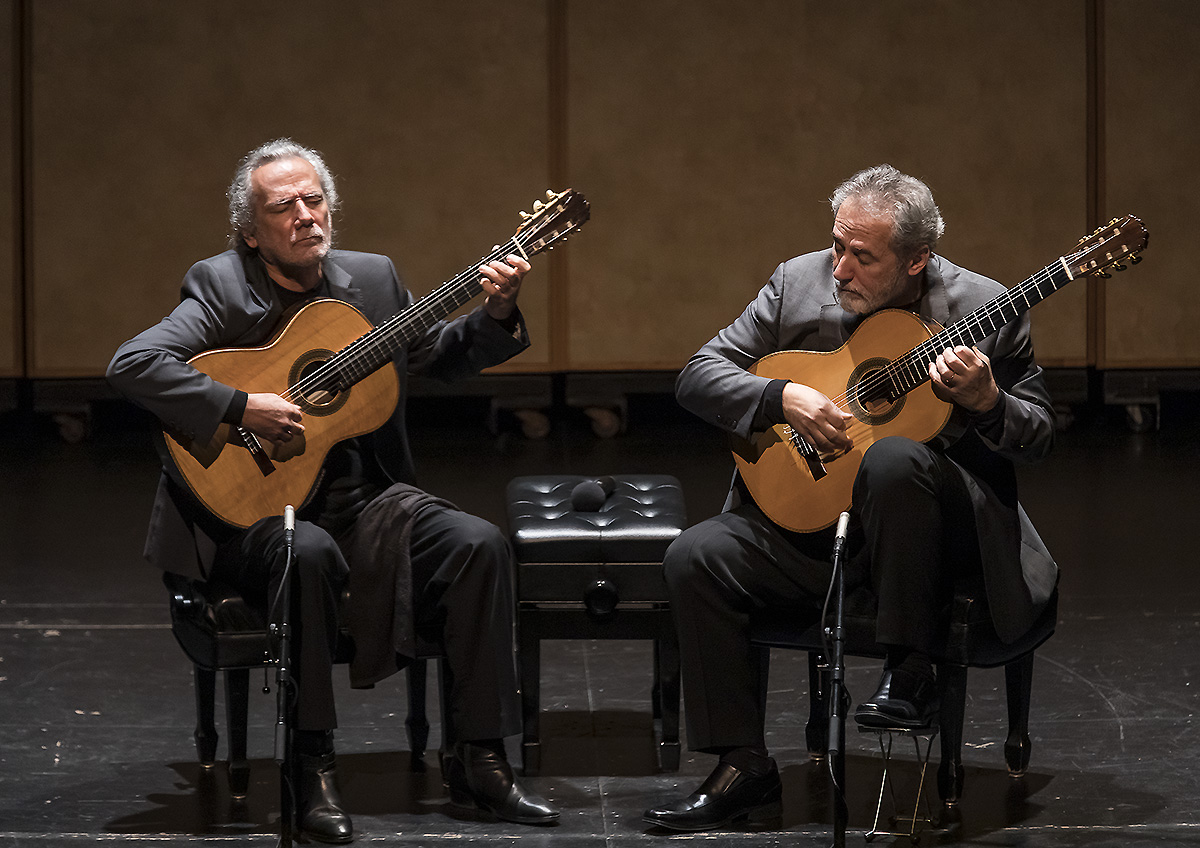Hearing the Assad Brothers in concert, there may be a natural temptation to try and discern which sibling is the stronger player. Legend has it the Odair was the better player early in the Brazilian brothers’ venerable 55-year musical history together, leading Sérgioto turn attentions to composing and arranging, at which he excels. Ultimately, though, parsing out the bolder brother is a futile exercise: This is the world’s greatest guitar duo thanks to its seamlessly integrated, two-as-one mesh and sense of purpose.
The Assad Brothers appeared as a singular, unflappably brilliant entity when gracing the Lobero stage on Friday/Valentine’s Day. Presenter CAMA’s head Mark Trueblood explained that this was the Assads’ second CAMA appearance, after another Valentine’s Day meeting here eight years ago. Over the years, local Assad sightings also included a memorable concert in the Courthouse’s Mural Room, during UCSB A&L’s inspired, short-lived “chamber music in historic places” project.
Friday’s program may have lacked recent or surprising repertoire but made up for that with its intelligent survey of high points and standard-bearers in classical guitar and Brazilian musical history. The duo opened the show, fittingly, with Mauro Guiliani (1781-1829), a seminal composer for the modern classical guitar, and also including the Tonadilla para dos guitarras of Joaquin Rodrigo, whose Concierto de Aranjuez is the towering guitar concerto.
Brazilian guitar/music culture owned the concert’s second half, with the Choros No. 5 “Alma Brasileira” of master composer Heitor Villa Lobos — supplier of some of the most sublime extant classical guitar music — the jazz-leaning visionary Egberto Gismonti, and, closing with SérgioAssad’s striking and marginally modernist 2003 Suite Brasileira. If there was a surprise in store it may have been Antônio Carlos Jobim’s film-score-turned-concert-music Crônicada Casa Assassinada. Here was Jobim, aspiring “serious” composer, stepping aside his status as bossa nova king, and — with generous thanks to the Assads’ soaring artistry — leaving us impressed and wanting more.




